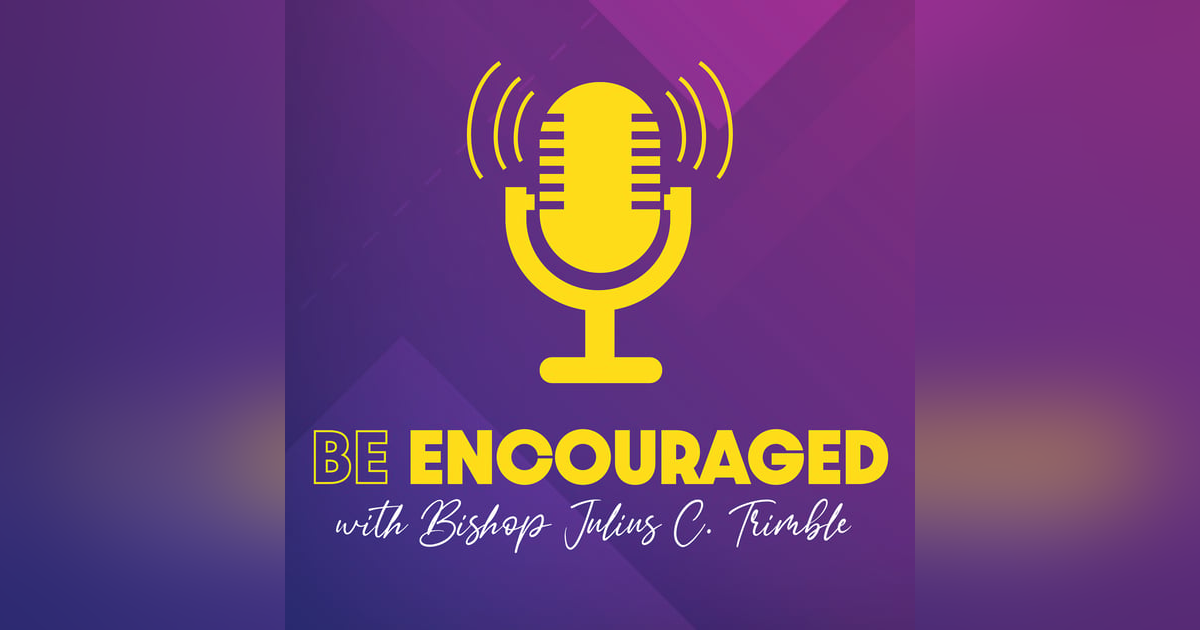Reflections on Recent United Methodist General Conference with Bishop Trimble

Bishop Julius C. Trimble is the Resident Bishop of the Indiana Area of the United Methodist Church.
Bishop Trimble has the personal mission to encourage all people with the love of Jesus Christ to rise to their highest potential. It is his commitment to his personal mission that led Bishop Trimble to create the “To Be Encouraged” Podcast along with co-host Rev.Dr. Brad Miller.
Bishop Trimble says, “I am compelled by Jesus to share with you an encouraging word or two about Jesus, theology, the Bible, the pandemic, the environment, racism, voting rights, human sexuality, and the state of the United Methodist Church.”
To Be Encouraged with Bishop Julius C. Trimble is to be published weekly and is available at www.tobeencouraged.com and all the podcast directories.
https://www.inumc.org/bishop/office-of-the-bishop/
EP: 104 "United Methodist Church Progress: A Brighter Future Ahead"
Introduction:
In this episode of "To Be Encouraged," Bishop Julius C. Trimble shares insights with Rev. Dr. Brad Miller on the recent United Methodist General Conference. The conversation goes into crucial decisions, reflections on the church's historical challenges, and hopes for a more inclusive and adaptive future.
Key Takeaways:
1. Embracing Inclusivity:
One major highlight of the General Conference was the removal of discriminatory language from the United Methodist Church's Book of Discipline. By updating its policies, the church takes a significant step towards welcoming all individuals, including the LGBTQ community, into the ministry without discrimination. This decision reflects a shift towards a more inclusive and compassionate approach, emphasizing the importance of equal access to church services for all parishioners.
2. Regionalization and Adaptation:
The episode emphasizes the need for the United Methodist Church to adapt and evolve in a rapidly changing world. Discussions at the conference highlighted the concept of regionalization, acknowledging the diverse cultural contexts in which the church operates. With changes in the church's constitution and organization pending approval, the focus is on creating a nimble and contextually relevant structure that can better serve the global community of believers.
3. Social Principles Revision and Advocacy:
Bishop Trimble and Rev. Dr. Miller discuss the church's commitment to social principles that reflect its core beliefs and mission. By revising these principles to address global issues such as environmental stewardship, racism, and access to basic necessities, the United Methodist Church reaffirms its dedication to advocating for justice and compassion worldwide. This emphasis on caring for creation and promoting equitable policies underscores the church's role in fostering positive change within society.
Conclusion:
The episode closes with a message of hope and grace, encapsulating the spirit of encouragement that defines the podcast. As Bishop Trimble shares a poignant quote and offers a prayer for guidance, listeners are reminded of the transformative power of unity, inclusivity, and social responsibility. The United Methodist Church's journey towards a more welcoming and adaptive future serves as a beacon of inspiration for all those seeking to create a brighter, more compassionate world.
This is the first of several episodes of To Be Encouraged regarding General Conference.


